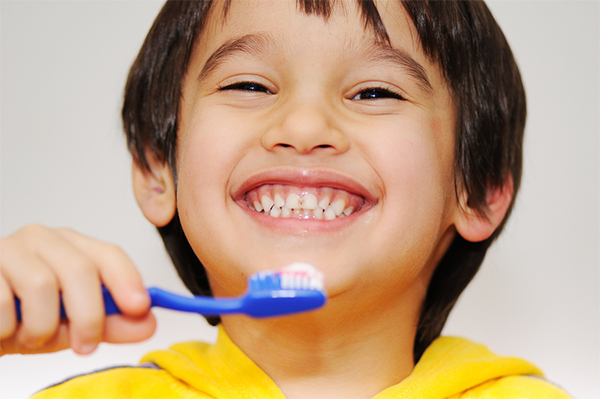Teeth are a very important part of our body. They help in eating, talking and looking your best when you smile. Without healthy teeth and gums, eating would be a pain, and you could become hesitant in opening your mouth to talk or smile because of yellow teeth or bad breath. This could happen to anybody, but many people often take oral hygiene for granted. Kids are one of these most common culprits. You ask children if they brushed their teeth, and they almost always say yes when they actually didn’t. A lot of kids (and some adults, even!) are lazy when it comes to dental care. Just as eating and showering, taking care of your teeth should be a necessary part of your daily routine.
- Recommended cleaning/brushing gums and teeth timeline:
- Newborns – Newborn infants don’t have teeth just yet, but it is recommended to wipe down their gums with a damp cloth after each feeding session to prevent bacteria buildup.
- 0-3 years old – As soon as baby teeth start to grow in, tooth decay can occur at any time. Begin brushing as soon as the first tooth appears, and make sure you use a soft-bristled toothbrush and a tiny amount of toothpaste with fluoride.
- 3-6 years old – When a child turns 3, you can start teaching him or her brushing techniques and tips (e.g., not to swallow toothpaste). Parent supervision and guidance is important during this time. By age 6, children should be able to brush their teeth on their own.
- Take your child to the dentist. The American Dental Association (ADA) recommends that the first dental visit take place within six months after the first tooth appears, but no later than a child’s first birthday. From then on, it’s recommended to regularly visit the dentist twice a year for checkups and cleaning.
- Brush teeth at least twice a day. Your child should be brushing his or her teeth twice a day (after breakfast and before bedtime) for about 2-3 minutes each time. Be sure to brush the tongue, too! Good brushing helps prevent plaque buildup.
- Flossing is important, whether you like it or not. A lot of people skip the flossing step, but flossing is necessary to get out the extra food and bacteria particles stuck between your teeth, which may have been missed during brushing.
- Sugar is the enemy. We all love our sweets, but too much sugar is dangerous to our teeth and overall health. Children tend to be more vulnerable because they have less control and sweets are their weakness (what child rejects candy?). Be sure to regulate what your child eats and try to reduce sugar intake as much as possible. Bacteria in the mouth love sugar, which can easily lead to cavities. Keep sweets a “treat,” not a regular part of their diet.
Protect your children’s teeth pediatric dental care
The pediatric dentists at Augusta University Dental Associates understand the special needs of children from birth through adolescence and those with special health care needs up to age 21. To schedule an appointment call 706-721-2716 to speak to a member of our Pediatric Dentistry team.
Sources: American Dental Association: MouthHealthy, Dear Doctor – Dentistry & Oral Health, Nemours: KidsHealth





Really great and amazing tips mentioned in your blog. I will definitely try to follow your expert tips.